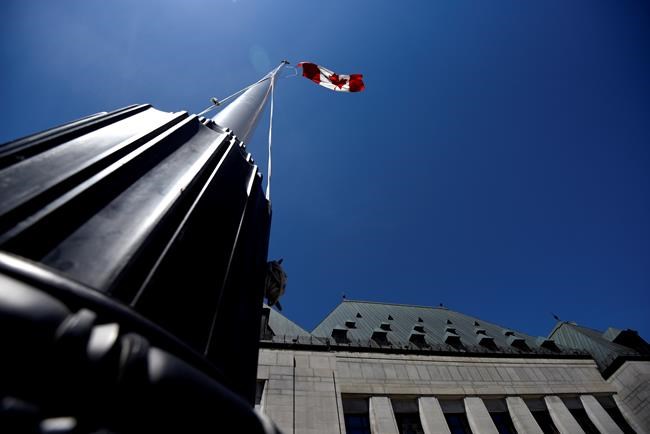Supreme Court of Canada to examine timing of roadside breath tests
Advertisement
Read this article for free:
or
Already have an account? Log in here »
To continue reading, please subscribe:
Monthly Digital Subscription
$0 for the first 4 weeks*
- Enjoy unlimited reading on winnipegfreepress.com
- Read the E-Edition, our digital replica newspaper
- Access News Break, our award-winning app
- Play interactive puzzles
*No charge for 4 weeks then price increases to the regular rate of $19.00 plus GST every four weeks. Offer available to new and qualified returning subscribers only. Cancel any time.
Monthly Digital Subscription
$4.75/week*
- Enjoy unlimited reading on winnipegfreepress.com
- Read the E-Edition, our digital replica newspaper
- Access News Break, our award-winning app
- Play interactive puzzles
*Billed as $19 plus GST every four weeks. Cancel any time.
To continue reading, please subscribe:
Add Free Press access to your Brandon Sun subscription for only an additional
$1 for the first 4 weeks*
*Your next subscription payment will increase by $1.00 and you will be charged $16.99 plus GST for four weeks. After four weeks, your payment will increase to $23.99 plus GST every four weeks.
Read unlimited articles for free today:
or
Already have an account? Log in here »
Hey there, time traveller!
This article was published 18/11/2021 (1488 days ago), so information in it may no longer be current.
OTTAWA – The Supreme Court of Canada has agreed to hear a case that hinges on the time police took to arrange a breath test for a Quebec man.
Early one afternoon in April 2017, police got word of someone allegedly driving an all-terrain vehicle while drunk, arrived at the scene and stopped Pascal Breault, who was walking away.
Asked if he had been drinking, Breault said he’d had one beer, but insisted he had not been driving the vehicle, contradicting trail patrollers who had contacted the police.

The officers did not have an approved screening device — used to take an initial breath sample in advance of a full breathalyzer test of blood alcohol levels — so they radioed other nearby officers to obtain a device.
Breault repeatedly refused to provide a breath sample and was found guilty of failing to comply with a police officer’s demand, even though there was no device at the scene and one never did arrive.
Breault was acquitted when the Quebec Court of Appeal ruled the officer’s demand was invalid due to a provision which, at the time, required that a breath sample be provided “forthwith.”
This report by The Canadian Press was first published Nov. 18, 2021.


